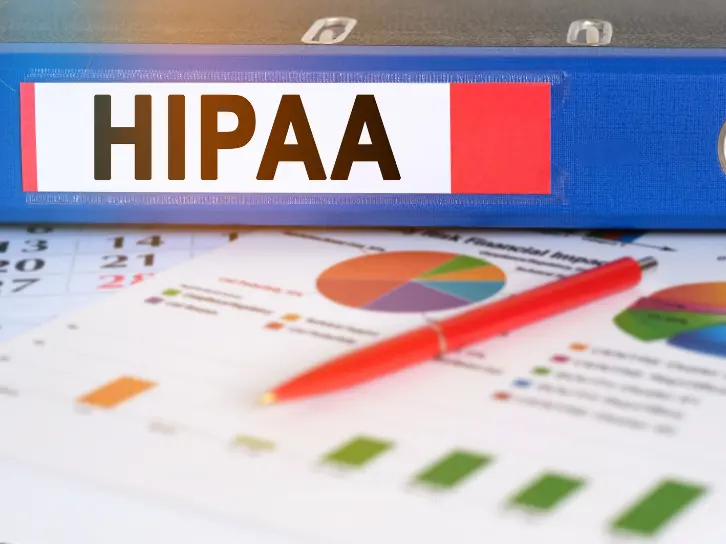Introduction
Handling gamified journalism in the health sector, be it medical professionals or legal practitioners, has long been a delicate matter, and for good reason. For one, it requires acute attention to detail alongside abiding by the legalese of both HIPAA and PHI.
This article delves into the intersection of HIPAA, PHI, and worker’s compensation laws while particularly emphasizing compliance, legal exceptions, and best-case practices.
1. The Basics of HIPAA and PHI
HIPAA has always been against the idea of exposing sensitive patient information as once committed, it could be highly detrimental to the future of medical care. To achieve this, PHI and several other subchapters were introduced such as:
- Protected Health Information (PHI): Any data regarding an individual’s health condition, care, or payment, that is identifiable to that individual.
- Privacy Rule: Dictates what PHI can be used and what disclosure is made without specific consent of the patient.
- Covered Entities: Healthcare providers along with health plans and clearinghouses also fall under this subchapter.
Why PHI Matters in Workers’ Compensation Claims
During the worker’s compensation process, documentation suffices to be a form of evidence, and PHI aids in that process – however, certain constraints and obligations must first be adhered to.
2. Navigating HIPAA Compliance in Workers’ Compensation Cases
PHI serves as a safeguard within a worker’s compensation claim and provides practices with the support to remain ethical and legal. To gain maximum effectiveness, worker’s compensation often requires:
- Authorization: Legal approval from workers is required for PHI to be shared.
- Minimum Necessary Standard: Workers must only be told the minimum amount of information for a claim to be processed. This is known as the minimum necessary standard.
- Secure Handling: It is important to ensure that any electronic or physical records are not accessed without proper authorization.
It is important to understand the HIPAA rules applicable to compensation so that penalties can be avoided.
3. Understanding PHI Disclosures Under Workers’ Compensation Laws
Workers’ Compensation PHI that does not meet federal and or state laws will be prohibited from being used. Some of the items to consider include:
- Purpose-Specific Disclosure: PHI is restricted to use only during claim evaluation and management of the employee.
- Employer Access: Employers might be provided with minimal PHI, such as determining whether the employee is fit to work; nonetheless, they do not cover the detailed medical history of the employee.
- State Variations: The rules regarding what should be disclosed vary from state to state; professionals should be updated on the rules of the state.
4. Exceptions to the HIPAA Privacy Rule: What Workers’ Compensation Professionals Need to Know
There are a set of limits under which a PHI is authorized to be used.
Examples include Workers’ compensation privacy opens a plethora of possibilities, in claims There are no limits that can be reached if working with representatives are over authorities make the rules.
- No Authorization Required: Any family member can access PHI without the consent of the patient if there are state workers’ compensation laws that allow such acts.
- Regulatory Disclosures: There are times when government agency offices are required to obtain PHI files for auditing or investigation purposes.
- Legal Proceedings: Court Materials About the claim, PHI might be shared concerning the case and attending court.
It is up to the professionals to outline these exceptions in a manner that ensures that the legal obligations set forth are maintained.
5. Legal Considerations for Sharing Medical Information in Workers’ Compensation Claims
In the process of workers’ compensation claims, the medical information sharing is:
- Clear Documentation: Keep track of those who used PHI and the reason for its use.
- Attorney Oversight: Workers’ compensation attorneys serve an important function in assuring that disclosure is consistent with the requirements of HIPAA laws and the WC regulations respectively.
- Penalties for Non-Compliance: For breaches, penalties can be stiff and both legal and financial repercussions such as fines and damage to reputation can be encountered.
6. The Role of Attorneys in Ensuring Compliance with HIPAA and PHI Guidelines During Claims Processing
Attorneys handling workers’ compensation segments should be able to do the following:
- Educate Clients: Discuss the client’s entitlement to discuss even the other party’s PHI if the other party has no objection to disclosure.
- Monitor Compliance: Make sure the healthcare providers and insurers comply with PHI sharing limitations.
- Navigate Legal Exceptions: Appropriate use of HIPAA exceptions while protecting the interest of the client.
It takes legal knowledge to achieve a balance between private information and clear claim processing.
Frequently Asked Questions
Are there penalties for HIPAA violations in workers’ compensation cases?
Yes, non-compliance can result in fines, legal actions, and reputational damage.
Can employers access an employee’s medical history under workers’ compensation laws?
Employers can access limited PHI, such as work restrictions or treatment plans, but not detailed medical histories.
What is PHI in workers’ compensation claims?
PHI are all documents that contain health details that are identifiable and are used when a worker’s compensation claim is being processed, such as medical evidence, other supporting details, and treatment information.
Conclusion
Striking a balance between compliance with HIPAA and PHI in workers ‘compensation claims is a delicate and necessary exercise. This juggling act helps professionals in dealing with confidential medical information through an understanding of compliance, legal exceptions, and the attorney’s advocate’s role.
Need help with HIPAA compliance while reviewing medical records for a workers’ compensation claim?
Our experienced professionals can be contacted now for great efficient solutions that safeguard and are supportive of the clients and the claim filing procedure.



